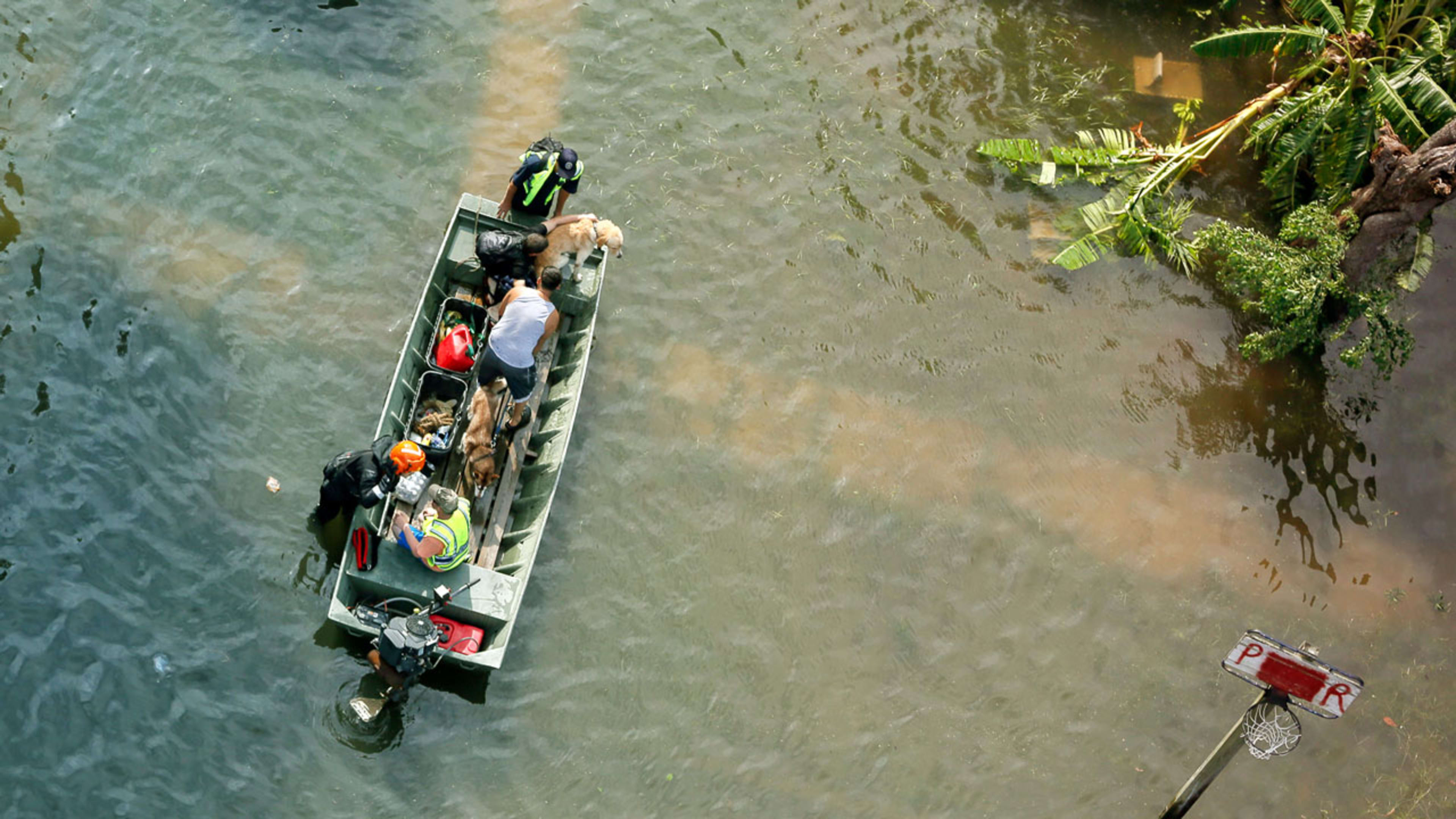As the rains kept falling, the superlatives flowed; then language itself was flooded. “Unprecedented.” “Unknown.” “Beyond anything experienced.” “One-thousand-year storm.” Gov. Greg Abbott of Texas called Harvey “one of the largest disasters America has ever faced.”
How do you talk about something that’s never happened before, and effectively describe the risks that it poses to people, so that they might be motivated to prepare and respond? “You just can’t throw science at them,” Mike Brennan, a meteorologist with the National Hurricane Center, told the New York Times. “We are scientists; we like numbers and technical knowledge, but we need to use plain words… People are bombarded with messages. So you try to point them to the hazards.”
A National Weather Service project focused on the semantics of weather is doing just that, aiming to simplify the language its forecasters use to describe hazards, the Times reports.
The fittingly named Hazard Simplification Project is working with social scientists who are experts in how the public perceives risk and messaging.
The idea, [project leader Elliott] Jacks said in an interview, is to create a standardized catalog of words that meteorologists can pull out to describe pre-defined weather conditions. For example, reserving the use of the word “catastrophic” for only some extremely violent storms, would make it more of a common call to action rather than a description of just one episode.
But true to its legacy, Harvey evaded description, particularly when it was referred to by the weather service as “beyond anything experienced.”
“I have not heard anything like that,” Mr. Jacks said. “It is actually the right language. Our forecasters on the spot are being really very creative in making people understand, and to save life and property. And that is where their heads are at when they are creating that kind of language.”
Recognize your brand’s excellence by applying to this year’s Brands That Matter Awards before the early-rate deadline, May 3.
